#The Black Curriculum
Text
The thing that almost never gets brought up in "banned books" conversations but that I think is essential to address, is the distinction between "students shouldn't be allowed to read this" and "students shouldn't be required to read this".
There is a wide gulf between removing a book from a curriculum list and removing a book from a library but I almost never hear that acknowledged.
#i have a lot more thoughts on this with examples but im supposed to be working right now#and this isnt to suggest a black and white mentality of 'removing a book from curriculum is always fine'#its not#but there is nuance there that very often gets drowned out by outraged cries of 'censorship' or pithy little slogans that obfuscate#the issue rather than actually engaging and figuring out where the lines should be drawn
1K notes
·
View notes
Text
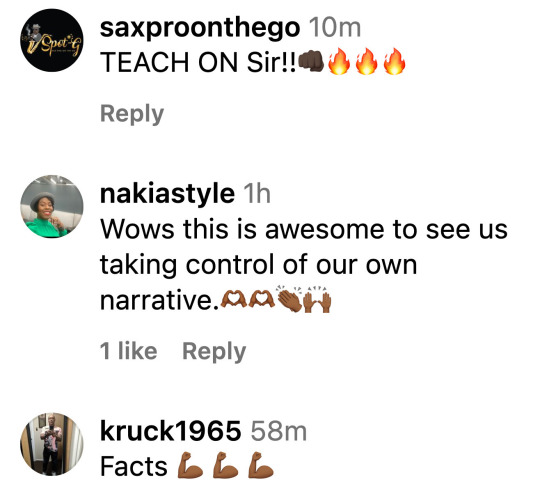
#african americans#african history#education#curriculum#empowerment#racial justice#black empowerment#curriculum development#historical narrative#education reform#community empowerment
87 notes
·
View notes
Text
Newsweek: Ron DeSantis Accused of Being 'Pro-Slavery' Due to New Florida Curriculum
Florida Governor Ron DeSantis is facing new criticism over his state's new curriculum for African-American history in which some say is "pro-slavery."
DeSantis, a Republican who is running for president in 2024, has made his embrace of right-wing social causes a cornerstone of his style of politics. He has decried "woke" education, signing into law requirements about how race can be taught in Florida schools as educators across the United States grapple with conservative efforts to limit discussions of diversity, including African American history, in public schools.
Advocates for more restrictive lessons on race have argued all sides of a political or historical debate should be presented in schools. Critics, however, are accusing DeSantis and other Republicans of attempting to erase the history of slavery, and that students should learn about this topic in its entirety.

This standard has sparked criticism from educational and civil rights leaders, who have accused Florida Republicans of seeking to whitewash the history of slavery.
Representative Eric Swalwell, a California Democrat, accused DeSantis of being "pro-slavery" over the educational policy.
"Please keep this simple: If you require schools to teach the 'personal benefits' of slavery you are pro-slavery. Ron DeSantis is pro-slavery," the Democratic lawmaker tweeted on Saturday.
— Rep. Eric Swalwell (@RepSwalwell) July 22, 2023
DeSantis defended the standards when pressed by a reporter, saying that he "wasn't involved" in writing these standards, which were "not done politically."
"I think what they're doing, is I think that they're probably going to show some of the folks that eventually parlayed, you know, being a black smith, into doing things later in life," the Florida governor said. "But the reality is all of that is rooted in whatever is factual."
Newsweek reached out to DeSantis' office for comment via email.
Still, many others also condemned the new standards.
Will Hurd, a former congressman from Texas who is also running in the GOP 2024 presidential primary, tweeted on Friday, "Unfortunately, it has to be said – slavery wasn't a jobs program that taught beneficial skills. It was literally dehumanizing and subjugated people as property because they lacked any rights or freedoms."
Unfortunately, it has to be said – slavery wasn't a jobs program that taught beneficial skills. It was literally dehumanizing and subjugated people as property because they lacked any rights or freedoms.https://t.co/4JjIgeDhKX
— Will Hurd (@WillHurd) July 21, 2023
Jaime Harrison, the chair of the Democratic National Committee (DNC), slammed the policy as "disgusting."
"The much anticipated DeSantis reset: Teaching our kids that slavery had its benefits," he tweeted on Friday. "Disgusting."
Vice President Kamala Harris, during a speech at Delta Sigma Theta Sorority Inc.'s 56th national convention in Indianapolis on Thursday, described the standards as an attempt to "gaslight us."
"Just yesterday, in the state of Florida, they decided middle school students will be taught that enslaved people benefitted from slavery," she said. "They insult us in an attempt to gaslight us and we will not stand for it. We who share a collective experience in knowing we must honor history in our duty in the context of legacy. There is so much at stake in this moment."
#Ron DeSantis Accused of Being 'Pro-Slavery' Due to New Florida Curriculum#florida#desantis lies#gop#white supremacy#systemic racism#revisionist history of america#all lies#american history#Black Lives Matter#Black History Matters
114 notes
·
View notes
Photo
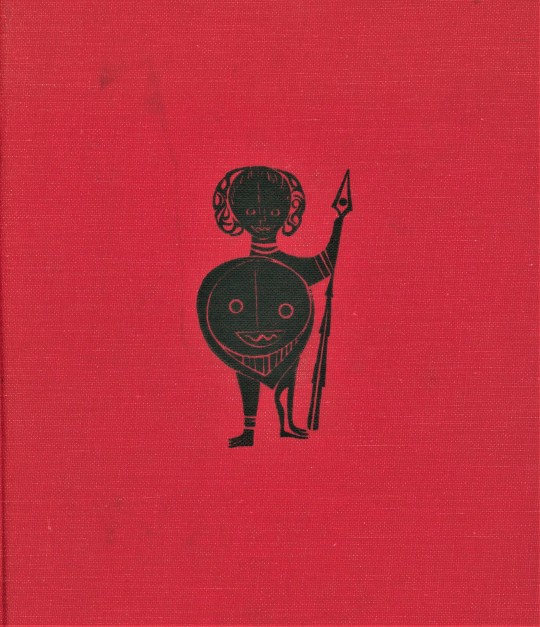
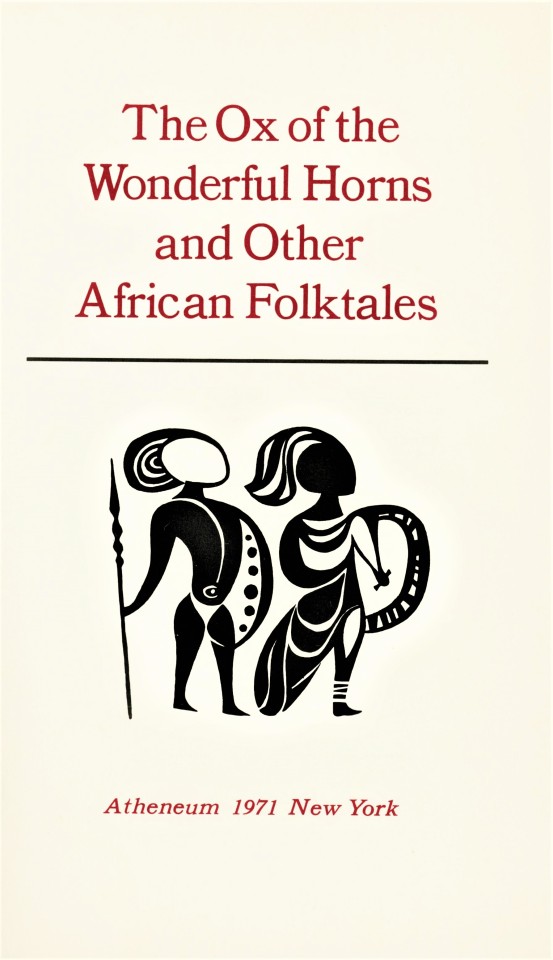
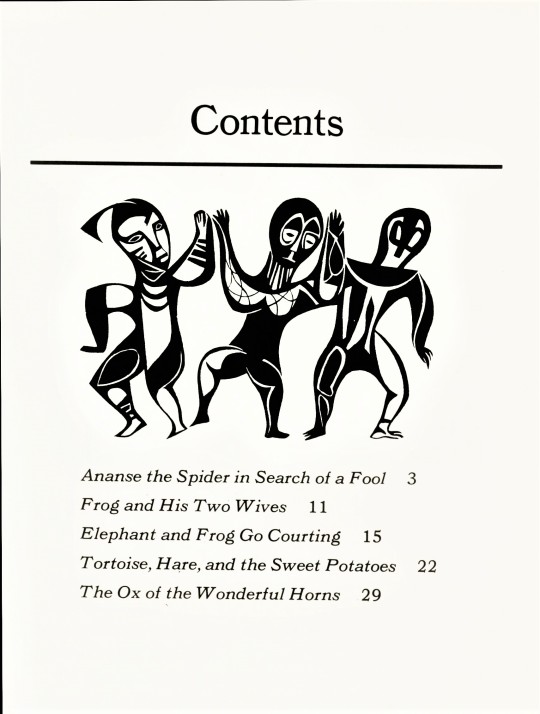


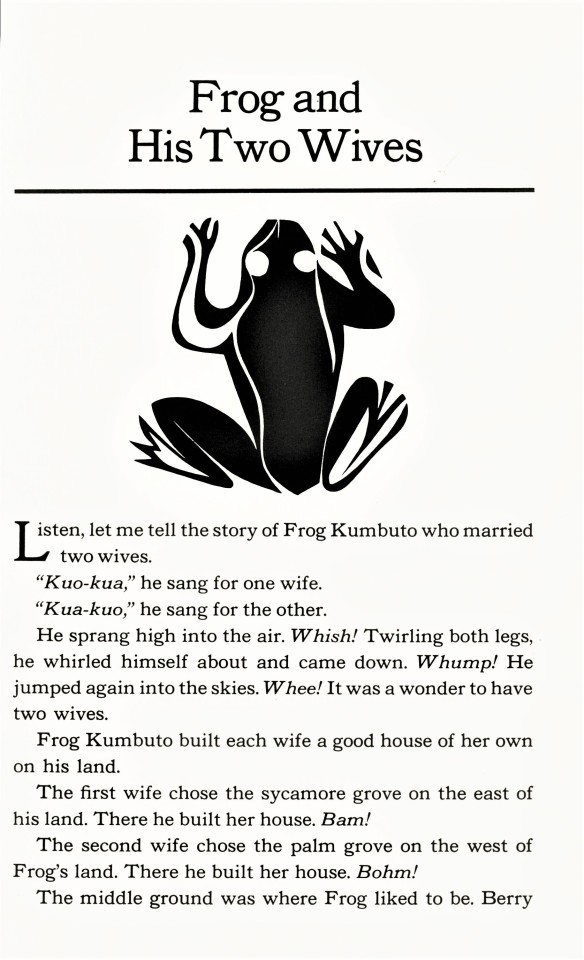

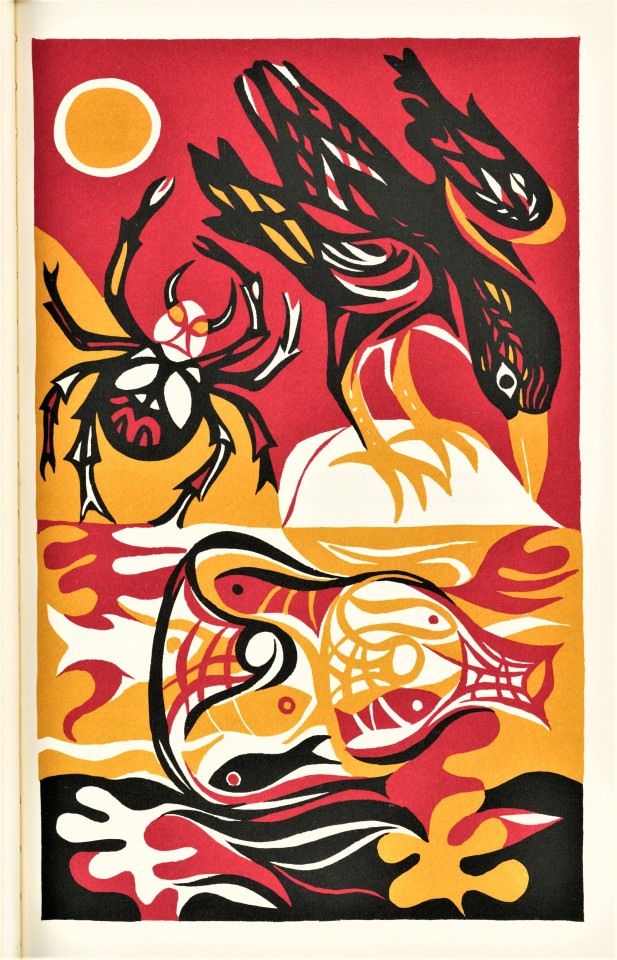
Spotlight: African Folktales
For Black History Month I found another book of folktales (shocker) to share with you all! The fun and exciting part of this job is being able to look into things that one would not normally take the time to explore, and I have been given the opportunity to do nothing but explore and dig into the expansive collection we have in Special Collections (if you aren’t getting interested to come in and take a peek, you should be).
The book I am keen on sharing is The Ox of the Wonderful Horns: And Other African Folktales, a children’s book from our Historical Curriculum Collection, published in New York by Atheneum in 1971. The stories were retold and illustrated by Ashley Frederick Bryan (1923-2022), an American writer and illustrator for children’s books, of which most of his subjects focus on the African-American experience. Bryan’s desire and challenge for the anthology was to “bring the stilted language of the linguists’ narration back to an oral tradition through rhythm and poetic verses.”
This anthology features five tales from Akan-Ashanti, Angolan, South African, and Kaffir myths with various illustrations accompanying us through each story. The illustrations switch between half-page black and white and full-page color that are meant to evoke African wood block motifs that suggest the ochres and reds of African clay dyes and African textile designs; very eye-catching and absorbing!
View another of my posts.
View more Black History Month posts.
-- Elizabeth, Special Collections Undergraduate Writing Intern
#Black History Month#black writers#black illustrator#folklore#folktale#african folklore#animal tale#animal folktale#south african#kaffir#akan-ashanti#angola#ashley bryan#ashley frederick bryan#Atheneum Books#The Ox of the Wonderful Horns: And Other African Folktales#children's books#Historical Curriculum Collection#Elizabeth V#Elizabeth V.
194 notes
·
View notes
Text
Why Parents Still Try to Ban ‘The Color Purple’ in Schools
Four decades after it was released, Alice Walker’s enduring classic remains at the forefront of the battle over what is available on library shelves.
— By Erin Blakemore | August 22, 2023
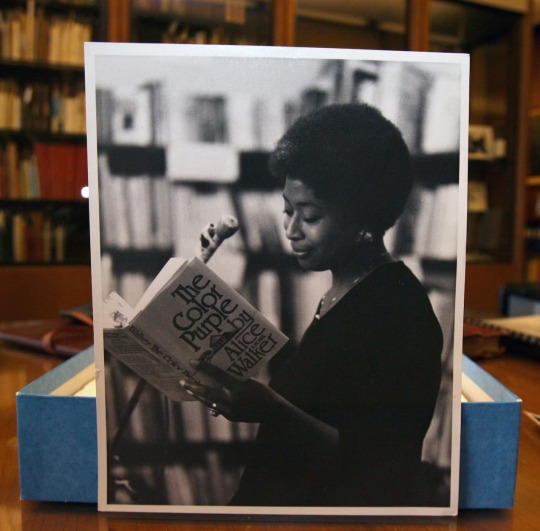
Alice Walker reads from her Pulitzer Prize- and National Book Award-winning novel, The Color Purple. Since it was first published in 1982, the critically acclaimed book has been targeted by movements pushing to censor the book's subject matter. Photograph By Johnny Crawford, Atlanta Journal-Constitution/AP
When Alice Walker’s The Color Purple hit bookshelves in 1982, it blew away critics, became a nationwide bestseller, and endeared itself to readers who found pain and inspiration in its pages.
But in the years since its publication, the acclaimed novel has become famous for another reason: It’s one of the most challenged books in the nation, withstanding criticisms aimed at its depictions of race and sex, its portrayal of abuse and agony, and even its spelling and style.
Here’s how The Color Purple became one of the nation’s most banned books—and why it continues igniting controversy to this day.
“A Spiritual Experience”
Walker, who grew up in Jim Crow-era Georgia, described writing the book as a “spiritual experience” inspired by the strength and grit of the Black Southern women she made her heroines. The epistolary epic follows 40 years in the lives of its main characters Celie, Shug, and Nettie, who survive incest, domestic abuse, and racism in the early twentieth century—all while carving out joy, independence, and dignity along the way.
When it was released in 1982, the book immediately caught the attention of both the critics and the reading public, who praised the book for its portrayals of both the brutality and sorrow of racism and sexual violence and its celebration of Black women.
It was critically acclaimed, winning both the Pulitzer Prize and National Book Award for 1983, and inspired a popular 1985 film directed by Stephen Spielberg and starring Whoopi Goldberg and Oprah Winfrey.
Banning ‘Purple’
But something else accompanied the novel as its renown grew: controversy. Though educators recognized the book’s potential as a teaching tool, some parents and community members objected to its presence in school curriculums and libraries.
The first major attempt to ban the book occurred in 1984, when a parent petitioned against its use in an Oakland, California classroom. In a 1985 essay, Walker recalled reading frequent updates on “how the banning was coming along” and watching the book’s sales skyrocket.
“I felt I had written the book as a gift to the people. All of them,” Walker wrote. “If they wanted it, let them fight to keep it, as I had to fight to deliver it.”
Fight they did. Though the Oakland schools ultimately decided not to remove the book from classrooms, the book has consistently been challenged nationwide since its publication, repeatedly making it on the American Library Association’s list of most frequently challenged books.
Why Parents Challenge the Book
Attempts to ban The Color Purple usually contest Walker’s use of slang and profanity, the book’s portrayal of brutal Black men, a same-sex encounter between the two main characters, and its depiction of sexual violence in its first pages.
“One can eat from a cafeteria or a dumpster…but one would hope those placed in charge of our children would have exercised better oversight,” wrote one parent in a characteristic 2013 challenge in Brunswick County, North Carolina. (The book has survived multiple attempted bans in the Brunswick County school district.)
But the same pages that provoke ire in some have inspired others.
Oprah Winfrey, who endured sexual abuse as a child, later recalled reading the first page of The Color Purple “and thinking ‘Oh God, I’m not alone.’” After Winfrey co-starred in the first movie adaptation of the film, she began talking about her own experiences on her talk show.
TV historians now credit the self-disclosures inspired by Walker’s book with helping Winfrey develop her winning confessional interview format.
Modern Attempts to Ban the Novel
Efforts to ban The Color Purple have continued during a recent wave of attempted book bans.
In 2022, the American Library Association documented over 1,200 attempts to ban or restrict library materials—double the number of challenges from the previous year—and most of which attempted to remove multiple titles from shelves.
Among them was The Color Purple, which was removed from library shelves in Florida’s Indian County School District at the request of a parent group that objected to 156 of the books on school shelves, claiming the books contain everything from pornography to critical race theory. Though the district’s school board declined to ban The Color Purple, it did remove five of the other books on the list and approve a permission slip allowing parents to restrict their child’s use of school library books.
With news of an upcoming movie adaptation of the acclaimed musical based on the book, The Color Purple is poised to regain the national spotlight. Only time will tell if the movie will spark more challenges—but for now, the legacy of a book one 1982 reviewer called “indelibly affecting” is secure.
To date, the book has sold over 5 million copies—a number sure to rise as a new generation meets its heroines.
#Alice Walker#The Color Purple#Schools#Erin Blakemore#Pulitzer Prize & National Book Award-Winning Novel#Published | 1982#Nationwide Bestseller#Pain | Inspiration#Criticisms | Race | Sex | Abuse | Agony | Spelling | Style#Jim Crow-Era | Georgia#Spiritual Experience#Black Southern Women | Heroines#epistolary | Epic#Characters: Celie | Shug | Nettie#Stephen Spielberg | Whoopi Goldberg | Oprah Winfrey.#Parents | Community Members | Objections#School Curriculums | Libraries.#Oakland Schools#American Library Association#Brunswick County | North Carolina#Florida’s Indian County School District#The Color Purple | 5 Million Copies Sold
8 notes
·
View notes
Text
You know for the most part I got the intended point of what media we used in lit classes growing up but yesterday I suddenly remembered we watched the 1935 mutiny on the bounty in fifth grade English and uh. What was up with that.
#'suddenly remembered' i was listening to someone else talk about treasure planet#but uh yeah um. that was a room of what? nine and ten year olds?#i don't think anyone was following what was put down. if the teacher was putting down anything at all.#it was in black and white. our class periods were pretty short then so it took like a week to finish#and my otherwise very project and discussion focused teacher didn't explain or have us do anything with it during or after#like. was it in the curriculum? was it an excuse for a break week? was it just the only movie from the library available?#hmm.#wait no fifth grade that's ten and eleven year olds#but like still#point stands
11 notes
·
View notes
Text
Florida's controversial new African American history standards have stirred up strong reactions among political leaders, even leading to splinters within the Republican party in Florida.
On July 19, the Florida Board of Education unanimously approved a new social studies standard for African American history. In doing so, the board pushed pushed through criticism of the standards. Some critics said the curriculum downplays Florida's role in the historic oppression of Black people and others said the standards blame the African-American community for some of the crime they suffered, Ana Goñi-Lessan of the Tallahassee Democrat reported.
Vice President Kamala Harris slammed the new standards at an speech in Jacksonville days after it passed, prompting Florida Governor Ron DeSantis to challenge her to a debate in a letter Monday. Harris fervently rejected his invitation Tuesday while speaking in Orlando, Florida at the African Methodist Episcopal 20th Women's Missionary Society Quadrennial Convention.
"I'm here in Florida, and I will tell you there is no roundtable, no lecture, no invitation we will accept to debate an undeniable fact. There were no were redeeming qualities of slavery," she passionately told the crowd.
Here is what to know about Florida's new education standards that led to the Harris and DeSantis feud:
What is in the new Florida African American history curriculum?
Florida is required by state law to include history, culture, and experience of the African American community in K-12 curriculums. The same statute also created the African American History Task Force that reviews the standards for the curriculum. Despite it's nearly 20-year history, this is the first time that the state has created separate standards for the subject, chancellor of public schools Paul Burns told the Tallahassee Democrat.
Here are some controversial parts of the new curriculum standards:
"Instruction includes how slaves developed skills which, in some instances, could be applied for their personal benefit."
"Instruction includes acts of violence perpetrated against and by African Americans but is not limited to ...1920 Ocoee Massacre" (The Orange County Regional History Center called the Ocoee Massacre the "largest incident of voting-day violence in United States history." A white mob lynched a Black man after he attempted to vote and then went on to kill an unknown number of other African American citizens and burn down their homes.)
The curriculum does not include Florida's role in upholding slavery and segregation by seceding from the Union during the Civil War or by passing a resolution that opposed the Supreme Court's decision, Brown v. Board of Education, according to Genesis Robinson, political director for advocacy group Equal Ground, and other critics according to the Tallahassee Democrat.
Critics also say that the new curriculum does not use person-first language by using the term "slave" instead of "enslaved people."
Kamala Harris: 'They want to replace history with lies.'
Vice President Harris spoke at the Ritz Theatre and Museum in Jacksonville, Florida two days after the new African American history standards were passed by the FBOE.
She criticized the new standards for indicating that enslaved people benefited from slavery and victims of violence were also perpetrators.
"Adults know what slavery really involved. It involved rape. It involved torture. It involved taking a baby from their mother. It involved some of the worse examples of depriving people of humanity in our world," Harris said. "So in the context of that, how is it that someone could suggest that in amidst of these atrocities, that there was any benefit to being subjected to this level of dehumanization?"
She called the revised history curriculum "propaganda," that intended to mislead children.
"They want to replace history with lies," she told the packed room in a historically Black neighborhood in Jacksonville. "They insult us in an attempt to gaslight us, and we will not have it."
Ron DeSantis, Byron Donalds and William B. Allen react
On Monday, Florida Governor Ron DeSantis penned a letter to Harris defending the state's policy and inviting her to Florida to debate the issue. "You have instead attempted to score cheap political points and label Florida parents 'extremists.' It's past time to set the record straight," the letter states.
The letter also mentions William B. Allen, a conservative politician who sits on Florida’s African American History Standards Workgroup, which spearheaded writing the new standards. Allen criticized Harris for promoting false criticisms of the curriculum. "It was never said that slavery was beneficial to Africans,” he said in an interview posted by ABC News. Allen also went on to say, "It is the case that Africans proved resourceful, resilient, and adaptive, and were able to develop skills and aptitudes which served to their benefit, both while enslaved and after enslaved."
As reported by the Tallahassee Democrat, Florida GOP Congressman Byron Donalds, a prominent Black supporter for Donald Trump, supported the majority of the curriculum. He still found himself in a Republican fire storm for criticizing the part of the standard that suggests enslaved people benefited from slavery.
#DeSantis vs. Harris on Florida's African American history curriculum: What to know#Florida#Black History Matters#Black History#florida hate#Dr Marvin Dunn#desantistan
2 notes
·
View notes
Text
Men love the idea of a beautiful strong black woman until she uses that beauty and strength against them.
#when she lays out her boundaries#calls you on your disrespect#is confident and successful#and loves herself unapologetically#she then becomes the enemy#it’s hilarious how they try to tear her down#y’all wanted a bad bitch but weren’t ready for the curriculum#I love it tho cuz deep down men fear her#she’s literally unstoppable#black women in luxury#black femininity#hypergamy#high maintenance#luxury#level up#luxurious black women#black girl luxury#black girls in luxury#spoiled black girl#self care#aesthetic#self love#black women#feminine#my thoughts#lmaooo#black women in femininity#strong black women
25 notes
·
View notes
Link
By: Kathryn Knight
Published: July 1, 2022
Like many parents, the lockdowns of the last two years afforded Clare Page an unexpected insight into her daughter's school lessons.
Her then 13-year-old — who we will call Isla — attended Haberdashers' Aske's Hatcham College, a 1,400-pupil state secondary school in South London. And with teaching taking place online, some of the material she saw unfolding on her daughter's laptop at home was little short of horrifying.
Isla's 'lessons' — 46-year-old designer Clare uses the term loosely — included a lecture on white privilege; playing a rap song with the lyrics 'our Prime Minister is a real racist'; and an art lesson where pupils were encouraged to produce their own Black Lives Matter poster after being shown an image of black and white people stabbing each other.
Sex education meanwhile — delivered under the new 'relationship and sex education' policy that has become a compulsory part of the curriculum since 2020 — was no less disturbing. It turned out to be provided by the dubiously named 'School for Sexuality Education', an external organisation with links to a commercial website that promotes pornography and sex toys.
At its workshops, pupils were informed they lived in a 'heteronormative' (straight) world, that this was a bad thing, and they should be 'sex positive' instead.
Appalled at what she saw as little short of highly politicised dogma disguised as 'learning', Clare asked the school if she could see the material used in some lessons.
She was told she couldn't, and her repeated — and ultimately futile — attempts to do so have now led her to make a formal complaint to the Information Commissioner's Office, an independent authority set up, among other things, to promote openness and transparency in public bodies.
She believes that, if asked by a parent, schools should be legally obliged to provide information about the 'lesson plans' they use. At present, it is a matter of dispute as to whether they have any obligation to provide the information.
Clare is not alone in her concern: in recent years, a number of campaigning groups have sprung up to tackle what they see as the overt politicisation of children, while a slew of stories has also highlighted the way in which gender and racial politics have crept into the provision of education.
In the last week alone, a fee-paying Christian school in Oxfordshire has become engulfed in a row following a diversity-driven makeover in which the library was garlanded with rainbow LGBT flags, while Michelle Donelan, the Minister for Higher Education, has written to universities warning them that signing up to equality and diversity schemes could hamper free speech.
On Thursday, Conservative MP Miriam Cates spoke of her concern that recent guidelines are opening doors to 'age inappropriate' and 'extreme' content being taught in schools.
Clare, however, is one of the few parents prepared to talk openly about the problem, although understandably she has asked for anonymity for her family.
'I believe passionately in what I am fighting for, but as a parent I also want to protect my daughters,' she says. 'A lot of people are terrified of discussing this territory, but someone has to question what is going on.'
'Otherwise, it means that there is no transparency for parents regarding the messages being handed to our young people.' Clare and her husband are unlikely lightning rods: impeccably liberal, since marrying in 2001 they have lived in the London borough of Lewisham, a neighbourhood they chose for its diversity.
While privately educated herself, Clare was happy for both her daughters — Isla, now 15 and 12-year-old Natasha — to be schooled in the state system.
Both attended the local primary where, in 2018, Clare had an early insight into the gender politics at play when Natasha, then nine, announced she'd been told to refer to historical figures as 'they' rather than he or she because those who had come before us were unable to choose their preferred pronouns and that there were 'many more than two genders'.
'That was when the warning bell rang,' says Clare. 'I complained to the school and was staggered by the pushback from governors and the head teacher.
'It was basically a case of 'there is no way you can touch this'.'
Clare's concerns mounted when she learned that representatives from an organisation called 'Pop'n'Olly' — a self-styled 'LGBT+ equality educational resource' created by author and illustrator Olly Pike — were visiting the school during anti-bullying week.
'No one is against the idea of an anti-bullying week — but suddenly this message is being conflated with other more complex material,' she explains.
'The first thing I knew about it was when I arrived home to find my daughter watching an Olly Pike cartoon about a girl who has an overnight sex change which solves her bullying problem.
'Even if you take away the issue of whether you should be discussing trans-sexualism to children in primary school, this is highly misleading.'
When Clare complained, she was told that Olly Pike was recommended by the LGBTQ+ lobby group Stonewall which, in turn, was backed by the Department for Education.
Around the same time, Isla had started secondary school at Haberdashers' Hatcham College in Lewisham — one of a guild of schools founded by a legacy from 17th century benefactor Robert Aske. His name was removed from the school last year because of his purported links to slavery and, at Hatcham, his oil portrait has been removed and his statue repurposed.
A state comprehensive, Hatcham's intake is 83 per cent black and ethnic minority and 17 per cent white, but Clare says that children from all backgrounds largely got on well.
'It's an inner-city school so there are fights and there have been knife fears,' she says. 'But, overall, it is a successful, cohesive community and Isla has got very good friends.'
Nonetheless, Clare said she had become concerned about what she saw as overt politicising by teachers, not to mention the peddling of misleading and in some cases downright inaccurate information in lessons.
'The first thing that made me prick up my ears was when Isla told me her English teacher had come in on his last day at the school wearing a Jeremy Corbyn T-shirt and telling them all they had to vote Labour,' she recalls.
Not long afterwards she learned that one of her daughter's peers — a 'youth coordinator' for the climate change activists Extinction Rebellion — was leafleting classmates, encouraging them to join the movement and try to get arrested. 'The teachers were overtly congratulating her,' she says.
Clare raised her concerns with the school but says she was ignored, despite repeated attempts to secure a meeting.
Then came the first national lockdown of March 2020. With lessons taking place online, it gave Clare and her husband a chance to see what Isla was being taught. What they saw alarmed them, particularly in the aftermath of the tragic death of George Floyd at the hands of U.S. police officers in May 2020.
'One English teacher gave a lesson implying that America was a fascist police state and introduced the kids to a U.S. activist called Tamika Mallory,' says Clare. 'Some of her speeches are pretty incendiary, saying things like: 'I don't care if you burn down buildings.''
She was further alarmed to learn that in another lesson, a teacher had played a song by a rap artist called Dave which features the lyric 'our Prime Minister is a real racist', while Isla and her school friends — then just 13 — had also been shown a painting in an art class of white and black people stabbing each other to inspire them to make their own Black Lives Matters posters.
'It's deeply unwise to use a picture of people stabbing each other in a place where there is genuine worry that people might carry a knife,' says Clare.
'Some of the resultant images produced by the children and praised by the teacher included a police station on fire and a girl being shot in the head.'
Clare complained once more, and this time received a phone call from a Deputy Head who said they were under huge pressure from staff to respond to Black Lives Matter in the curriculum.
'I said I wasn't against that, but they had to be cautious as the organisation at its core is not just an equality movement but a political movement. The conversation was reasonable enough,' Clare recalls.
But what followed was a series of four assemblies that talked about white privilege and systemic racism. 'There was a slide that said: 'Is your curriculum too white?' Clare recalls. 'Children were also told that the point of the BLM phrase is that black lives were being treated as expendable by the police and the government that employs them.
'This is against a backdrop of citizens burning things in America and in a London borough that had rioting in 2012. I felt it was completely irresponsible.'
Again Clare and her husband complained until eventually, by autumn 2020, her grievance was heard before three school governors who upheld her complaint about the art class imagery and rap song, but insisted none of it was politically motivated.
'It meant our overall complaint about indoctrination was not upheld,' says Clare. 'One governor, an ex-High Court judge, concluded that my 'ideals and background' were misleading me.'
By this stage Clare and her husband had already made the decision to send their youngest daughter to a private school. But with Isla settled, they were reluctant for her to move schools in the run-up to her GCSEs.
For a while, things were calm —but then last autumn, Clare was alarmed to learn of the nature of the school's RSE provision.
Previously told the lessons would focus on 'inclusive consent', in reality, there was also lengthy discussion about 'heteronormativity' and the need to be 'sex positive'.
On paper, the latter is defined by the need to have a healthy, shame-free attitude to all aspects of sexual conduct — but in reality, says Clare, is often a Trojan Horse via which to convey more troublesome ideologies.
Emboldened, Clare asked once more to see the lesson plans, and was once more denied access. 'At first, they wouldn't really tell me what the problem was, but then said the School of Sexuality — which, remember, provided content for the RSE lessons — had told them I couldn't see them because of their commercial interests. That seemed extraordinary to me,' she reflects.
Clare then took matters into her own hands and called the School for Sexuality directly.
'I had a pleasant enough ten-minute conversation with the woman who answered the phone who seemed to agree that I could have access,' she says.
'In the wake of that, I learned the Chief Executive had contacted the school and accused me of harassment. She said on no account must the school show me the lesson plan as I was likely anti-LGBTQ+ and organisers 'would not be safe' if I was given the lesson plan.'
At the same time, Clare's own research led her to discover that Nadia Dean, the organisation's 'workshop facilitator', runs a side business promoting sex toys and pornography.
'There was a link to that website on the organisation's own website. Another lady on the website links to her blog where she sings a song with her ukulele which features the words 'Let's all masturbate'.'
After initially being told that the links would be removed, Clare was informed the school would no longer be using the provider.
'I was clear they needed to do more than that — that they should notify the DfE that organisations, many of them funded by taxpayers' money and rubberstamped by government, are peddling deeply troubling ideas under the banner of promoting social justice.'
A spokesperson for the school said: 'At Hatcham College we want children to critically engage with a wide range of opinions and views that challenge received wisdom.
'PSHE lessons provide children with the space to explore difficult topics of historical and societal importance, and the vast majority of our parents are supportive of our approach.
'All our teaching and resources adhere to the Secretary of State's statutory guidance and best practice, in which they acknowledge areas of 'understandable and legitimate areas of contention' due to its depth and breadth.
'We are grateful to Ms Page for raising her concerns, and although her views are unrepresentative of our school communities, we recognise their legitimacy and the part they play in opening an interesting and wider debate about PSHE curricula and access.'
Nonetheless it is clear many parents remain discomfited, while Paul Conrathe, Senior Consultant Solicitor at education specialist Sinclairslaw, says schools that hide behind commercial confidentiality are 'skating on thin ice'.
'The critical question is whether it is in the public interest not to disclose those materials,' he says. 'How can it be in the public interest to withhold curriculum materials that deal with controversial and sensitive matters on sexuality, sex, gender and race from parents?'
For Clare, a principle is at stake. 'It has been difficult,' Clare admits. 'I've had to ask myself all the way through whether this is the right thing to do, whether I am burdening Isla too much with this.
'There's been a lot of talking, but ultimately, she has always agreed that what she is encountering doesn't feel right.
'We are agreed that parents have a right to know what is being taught to their children.'
==
Secrets with children, kept from parents is the modus operandi of the Catholic Church.
I didn’t even know what my teacher’s first names were, let alone their political alignment or sexual orientation.
“Do not indoctrinate your children. Teach them how to think for themselves, how to evaluate evidence, and how to disagree with you.”
-- Richard Dawkins
#Haberdashers' Aske's Hatcham College#curriculum transparency#corruption of education#wokeness as religion#woke activism#wokeism#cult of woke#woke#ideological corruption#ideological capture#antiracism as religion#antiracism#neoracism#white privilege#black lives matter#BLM#gender ideology#queer theory#gender pseudoscience#woke insanity#ideological indoctrination#long post#religion is a mental illness
10 notes
·
View notes
Text
went into the post i just reblogged abt worst classic book we’ve read and took psychic damage i need to leave it alone
#Psy's no punctuation posts#seeing people be like 'Heart of Darkness shouldn't be in the curriculum it can be replaced with something better' with the implication#being that it's because it's an immoral book is like.... man... that's why we read it#like yes it's a very tough book to read- particularly for black students- and should be handled with care but like... come the fuck on#are we supposed to just read classic lit that's morally wholesome. absolutely the fuck not#this shit opens up discussion. they're important. people act like we assign classics for no fucking reason it drives me mad#one of the best class discussions i ever had were about books that were just morally repugnant. bcs it's interesting to evaluate#what was considered acceptable and okay in older times.#like we read Pamela by Samuel Richardson and holy fuck that book is revolting. but god did we have the best discussions about it
7 notes
·
View notes
Note
Please tell me that they did not put that guy in charge of children right now tell me that is a joke and not a thing happening in the world
what guy are you talking about?? if you’re referring to Oscar - first of all he’s not a guy in the sense I think you mean. second of all if you knew him or had talked to him at all you would be saying thank God he’s in charge of children. he cares about kids more than anyone I’ve ever met and the parents of his kids (even the ones who didn’t like him at first) all love him because their kids are so much happier and better off for having him in their lives.
#he’s like actively getting this little underprivileged black genius girl a scholarship to a private genius kid school bc she’s so far ahead#of her classmates he developed a new curriculum just for her#it’s amazing#I was sad about the one kid but in general I really admire the work he does with children
1 note
·
View note
Text
"So I let my brush run on like this for my own foolish solace, these pages deserve to torn up and discarded, after all, and are not something others will ever see."
from Yoshida Kenko, a 14th century medieval Japanese Buddhist monk who lived almost seven centuries ago, who has since been read by an almost incomprehensible number of people over hundreds of years
#this is from “a cup of sake beneath the cherry trees” published as part of penguin random house's little black classics collections#another volume of his works (tsurezuregusa) is read even more frequently as part of the japanese high school curriculum#he is the among the most studied of japanese medieval writers#and he thought no one would ever read his writings#i wonder how he would feel if he knew that his words have lived for so long#the immortality of writing is so crazy bc wdym i'm reading the thoughts of someone who died hundreds of years ago? and i understand him??
0 notes
Photo


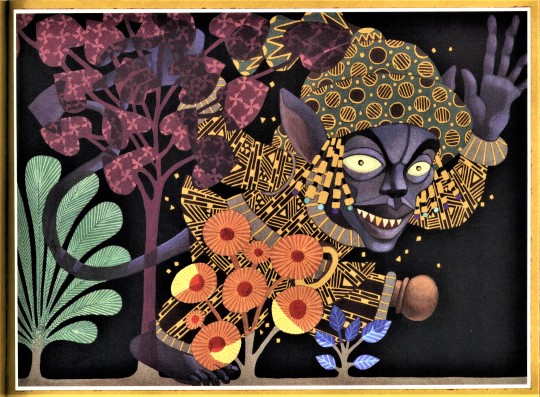

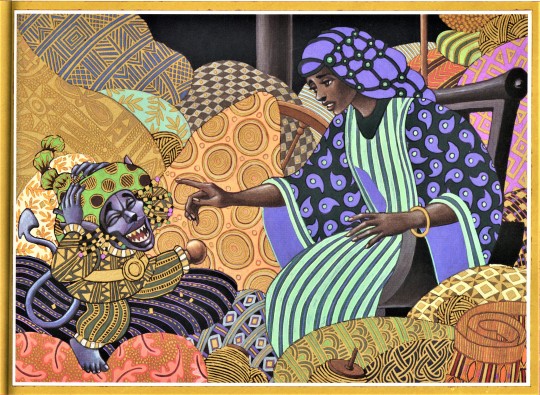


Staff Pick of the Week
My name is Elizabeth Voorhorst, and I am a new writing intern for Special Collections this semester. It is a pleasure to share this space, as I am excited to delve into the vast sea of books that Special Collections makes a home for.
I am an English major, with a focus on creative writing. Because of this, my time spent in Special Collections will be focused predominantly on fairy tales and folklore, perhaps dipping into mythology when curiosity and inspiration strikes hardest.
For this week, I wanted to focus on black creators and their works for Black History Month. Because my pride and passion is folklore and fairy tales, I thought it would be fun to take a look at what we have in our collection and share it with you!
Retellings are always enjoyable, as you get to see the way writers recreate and offer their own flare and heritage to the story. One such story is The Girl Who Spun Gold, a retelling of the German classic fairy tale Rumpelstiltskin. This retelling was written by Virginia Hamilton (1932-2002) and illustrated by Leo Dillon (1933-2012) and Diane Dillon (1933- ).The book was published 1n 2000 by Blue Sky Press, an imprint of Scholastic Inc.
The story is about a West Indian girl named Quashiba, whose mother lies to Big King that she is able to spin golden thread. The King takes Quashiba as his queen, expecting her to fill whole rooms with golden fabrics and finery, which of course she would be unable to do. However, she meets a creature who offers to help, but demands that in three days she must guess his name correctly or be bound to him forever.
Quashiba is now able to fulfill the King’s continuous demands, but is unable to guess the name of her helper, until the King reveals to her that he ran across a strange creature in the woods who was dancing and singing a song that included his name, Lit’mahn Bittyun. So, on the final night, after the room is filled with fabrics and wondrous goods, Quashiba plays dumb for the first two guesses, and on the last guess she gives him his full name and he explodes into a confetti of golden specks. The King repents his greed, but only after three years and a day does Quashiba reconcile with him.
The absolutely stunning illustrations for The Girl Who Spun Gold were made using a four-color process with gold as a fifth color. The Dillons comment on the painting process, stating:
Knowing the difficulty of painting with metallic paint as well as the difficulty of reproducing gold, we still chose to use it, for the story itself revolved around the concept of gold. The art was done with acrylic paint on acetate, over-painted with gold paint. The gold borders were created using gold leaf.
The book was printed on one-hundred-pound Nymolla Matte paper, and each illustration was spot-varnished. Color separations were made by Digicon Imaging Inc., Buffalo, New York, and the book was printed and bound by Tien Wah Press, Singapore, with production supervision by Angela Biola and Alison Forner. Along with Leo & Diane Dillon, the book was also designed with help from Kathleen Westray.
View more work by African American artists.
View more posts concerning African Americans.
View more Staff Picks.
- Elizabeth V., Special Collections Undergraduate Writing Intern
#Staff Pick of the Week#black history month#virginia hamilton#fairy tales#Leo Dillon#Diane Dillon#the girl who spun gold#rumplestiltskin#folk tale#black writers#African American writers#African American artists#scholastic#black artists#Blue Sky Press#children's books#Historical Curriculum Collection#illustrated books#Elizabeth V.
215 notes
·
View notes
Text
Harnessing Harmony: A Day in Our Afro-Boho Homeschooling Life
Introduction:
Greetings, beautiful community! It’s your homegirl, Reiki Ra-ess, here to bring a sprinkle of sunshine and wisdom into your day. As a steadfast advocate for education that resonates with our roots and rhythm, I’m thrilled to unveil a daily tool that’s been a labor of love and learning in our household for over a decade– our Afro-Boho inspired Daily Worksheet.
Harmony in…
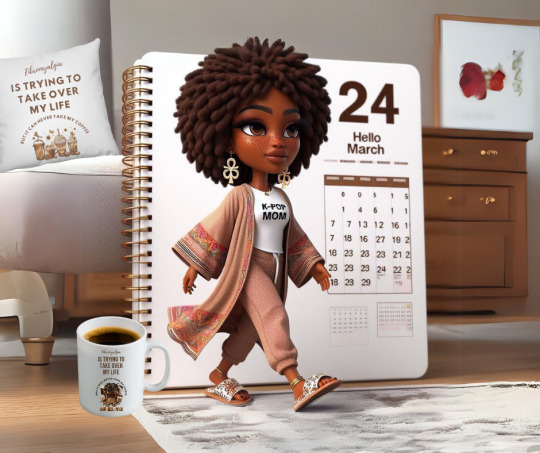
View On WordPress
#Afro-Boho homeschooling#Afrocentric educational activities#Ancestral wisdom in education#Breaking generational curses through homeschooling#Building generational knowledge in homeschool#Chakra-based learning for kids#Cultural homeschool curriculum#Customizable homeschooling templates#Daily homeschool worksheets#Educational worksheets for diverse families#Empowering homeschool lesson plans#Heritage-centered teaching materials#Holistic education printables#Homeschool organization and planning#Homeschooling for black families#Homeschooling with fibromyalgia#Integrating astrology in education#Melaninated homeschool resources#Mindful parenting and education#Yoga and mindfulness for students
1 note
·
View note
Text
JJ @jwilliamj - JJ - original sound - jwilliamj - Part 1, since misinfo is trendy
Credit: JJ @jwilliamj
#TikTok#JJ @jwilliamj#Candice Owens#PragerU#PragerU Curriculum#Part 1#Slavery#Black History#American History
0 notes
Text
youtube
#spoken_english #تعلم #learn_english #تعلم_الانجليزية
تعليم انجليزي - المنهج الامريكي لتعليم اللغة الانجليزية - لهجة الامريكان السود
لما بنيجي نتعلم لغة إنجليزية من خلال المنهج الامريكي لتعليم اللغة الانجليزية بنلاقي نفسنا قدام حيرة شديدة، نتعلم إنجليزي أمريكي ولا إنجليزي بريطاني؟ إيه فيهم أسهل من التاني؟ وإيه فيهم أهم؟ ويا ترى هل الفرق بينهم كبير لدرجة أنه ممكن يلخبطني وأنا بتعلم اللغة؟
المنهج الامريكي لتعليم اللغة الانجليزية زيه زي أي لغة في العالم هتلاقي فيه لهجات بعدد الدول والمدن كمان اللي بتسخدمه؛ لكن أشهر لهجتين معتمدتين اللهجة البريطانية واللهجة الأمريكية.. ولأنهم مجرد لهجتين للغة واحدة، فلازم نعرف أن لهجة الامريكان السود مش بيختلف كتير عن الأمريكي بالدرجة اللي ممكن تلخبطنا لكن بيكون فيه بعض الاختلافات البسيطة في طريقة النطق وقواعد اللغة.
لو عجبك الفيديو اعمل مشاركة من اللينك ده
تعليم انجليزي - المنهج الامريكي لتعليم اللغة الانجليزية - لهجة الامريكان السود
https://youtu.be/5WI_e-h8X0M
ليصلك كل جديد اشترك بالقناه
http://bit.ly/2HQGd4q
يمكنك الإستفادة من مزيد من الدروس
تعليم انجليزي - المنهج الامريكي لتعليم اللغة الانجليزية - لهجة الامريكان السود
https://youtu.be/5WI_e-h8X0M
كيف اتعلم انجليزي - اسئلة الانترفيو - مهارات المقابلة الشخصية
https://youtu.be/kFWQACcN3qU
كيف اتعلم انجليزي - انواع الجرائم - الجرائم
https://youtu.be/Ir37srWpHiQ
تدريب اللغة الانجليزية - التعبير عن الالم - كلام عن الالم والجرح
https://youtu.be/xfhlQ4zc-EM
تدريب اللغة الانجليزية - كلمات اساسية داخل الصف - الحوار
https://youtu.be/kMbYTOsUUw8
دورات اللغة الانجليزية - ترجمة الى الانجليزية - المترجم الانجليزي
https://youtu.be/-rHI9sGiFWQ
دورات اللغة الانجليزية - تعبير عن الاسرة - الاهل
https://youtu.be/A0spa90P5Tc
#مواقع_تعليم_انجليزي
#برامج_تعليم_انجليزي
#تعلم_اللغة_الانجليزية
#تعلم
#spoken_english
#english_speaking_course_online
#spoken_english_in_telugu
#نهي_طلبة , Noha Tolba
#t pronunciation in american english#th pronunciation#Black American Accent#American English Curriculum#Vanishing T#العامية الامريكية مجانا#المنهج الامريكي لتعليم اللغة الانجليزية#اسرار اللهجة الامريكية#تعلم اللغة الانجليزية للمبتدئين#English Education#كورس انجليزي امريكي#تعليم انجليزي#american t#تعلم الانجليزية#لهجة الامريكان السود#Noha Tolba#كيفية تعلم نطق اللغة الانجليزية بسهولة#Youtube
0 notes